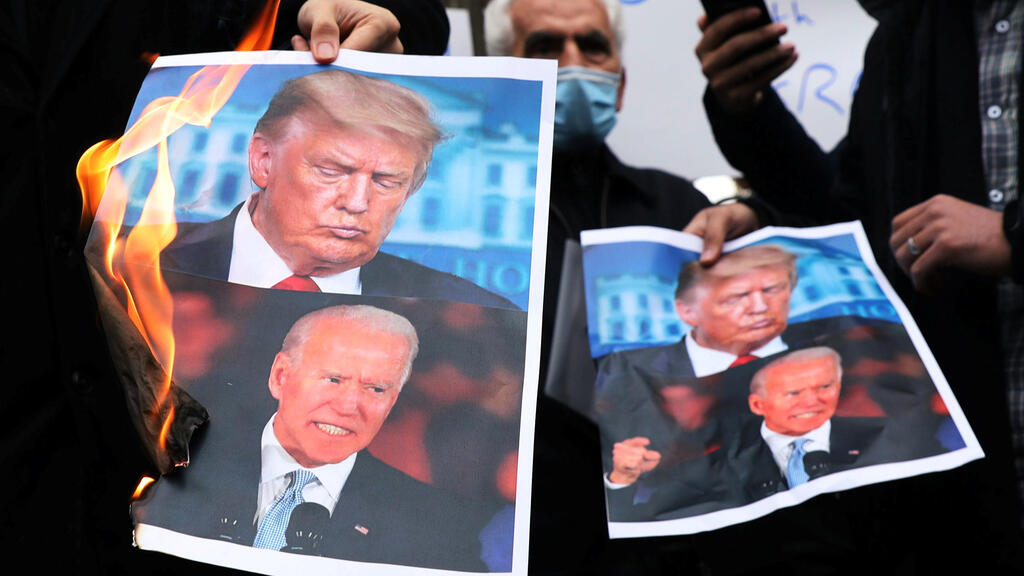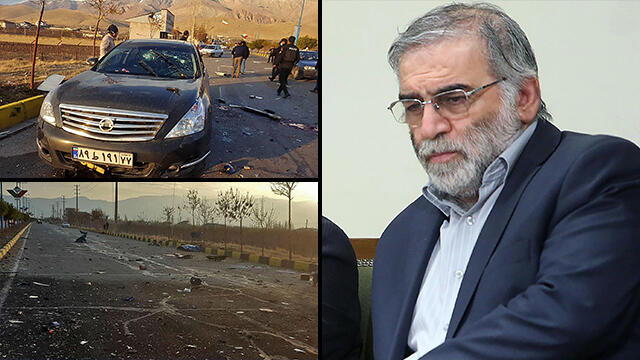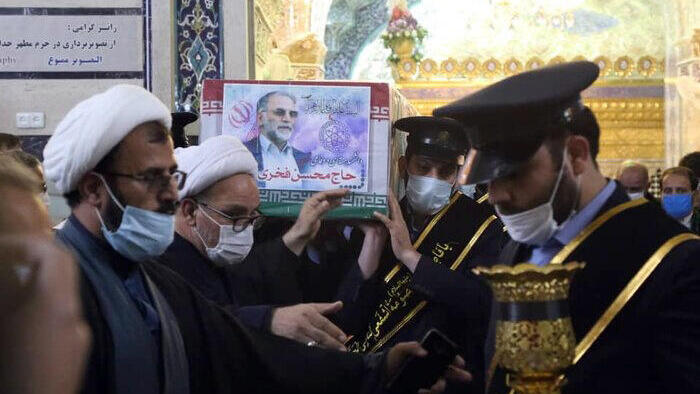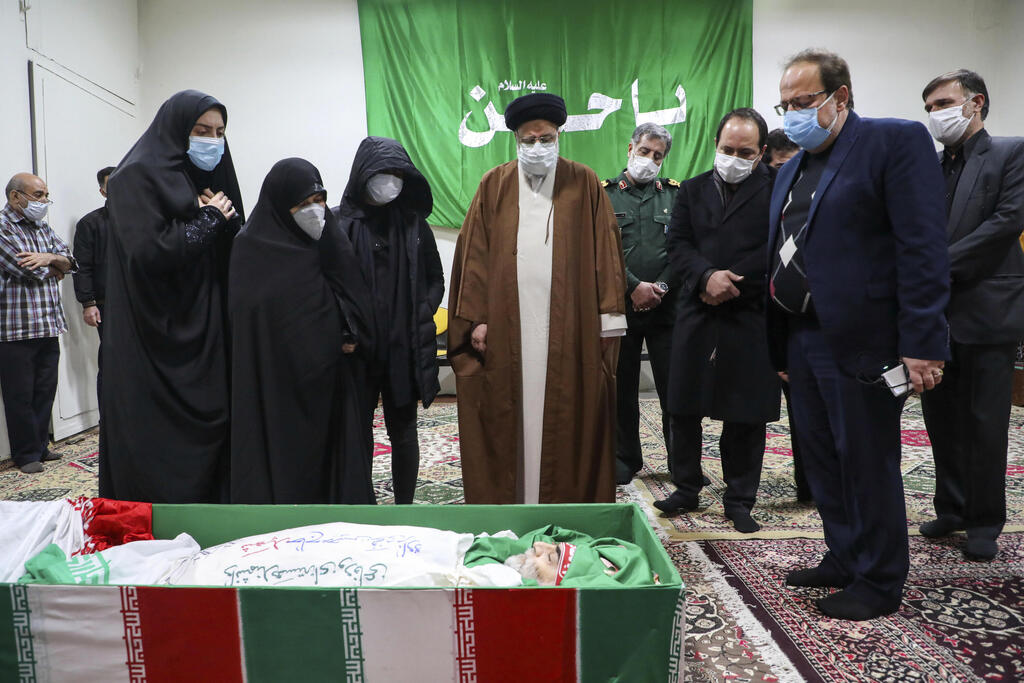Getting your Trinity Audio player ready...
Joe Biden will be sworn in as president of the United States in less than two months and the overriding premise is that Iran has no real interest in taking action to throw the Middle East into turmoil on the eve of his inauguration.
Even so, Iran’s desire to avenge the killing of the head of its nuclear program Mohsen Fakhrizadeh, coupled with the regime's wish to salve its wounded pride, could lead us down a murky path.
4 View gallery


Iranian protesters burn pictures of Joe Biden and Donald Trump following the killing of nuclear scientist Mohsen Fakhrizadeh
(Photo: Reuters)
Syrian President Bashar Assad will try his hardest to prevent Iran from taking retaliatory action against Israel from within his borders.
For two years, Assad has been signaling to the Iranians that the price his regime is paying for cooperating with Iran might be too dear.
And since Israel and Hezbollah are caught in what seems like an eternal stalemate in Lebanon, it is a safe bet that any retaliation for the death of Fakhrizadeh will be carried out on foreign soil.
4 View gallery


The car of Mohsen Fakhrizadeh was laced with bullets during his killing in Tehran on Friday
(Photo: AFP)
Just this week, three Iranians were released by Thailand as part of a prisoner swap, eight years after they were arrested in 2012 for trying to attack the Israeli embassy in Bangkok.
The three were involved in a wave of Iranian attacks against Israeli diplomatic missions in several countries in response to a series of assassinations of Iranian nuclear scientists that was attributed to Israel.
One should assume that Israel is currently taking precautions against any actions by Iran targeting its institutions and individuals abroad.
Meanwhile, the Iranians are now most likely to make use of any sleeper cells within the West Bank or even inside Israel's own borders.
4 View gallery


The coffin of Iranian nuclear scientist Mohsen Fakhrizadeh is carried inside the Shrine of Masoumeh during his funeral in Qom
(Photo: EPA)
Israel’s guiding principle in its war against the Iranian nuclear program is to constantly be on the offensive.
While Jerusalem knows there is not one single action it can take to decimate Iran’s entire nuclear program, Tehran also knows there is not one element of that program that is immune to Israel’s attempts to thwart it. This includes physical strikes and cyber attacks on nuclear facilities, as well as targeting its human factor - the scientists, managers and aides.
All countries kill in the name of their national interests. This is as true of the Americans, the French, the British and the Russians as it is of the Israelis.
4 View gallery


The funeral for slain Iranian nuclear scientist Mohsen Fakhrizadeh in Qom
(Photo: AP)
But in the last two years, bragging by some of the most senior members of government about activities carried out in secret has become a real issue.
Some Israeli officials have begun, either directly or indirectly, to claim credit for covert operations, thereby eliminating any plausible deniability and almost inviting our enemies to respond.

